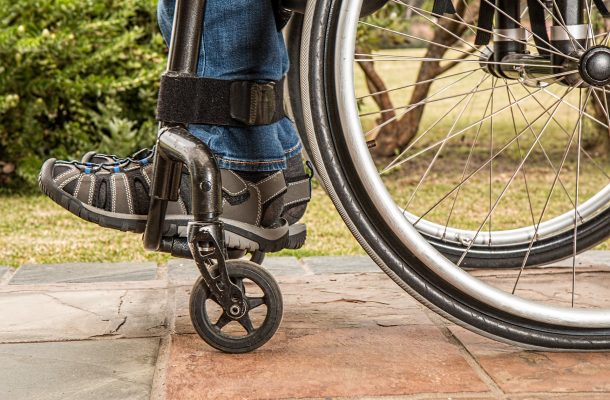Two ways to make progress on disability

Mr Scott Morrison,
I have previously written to you about ways to improve the lives of young Australians with high-needs disability and this letter will outline a couple of other suggestions regarding the progress of disability rights in Australia which desperately need your support.
The first one being educating the younger generations about disability while they are still at school. This being crucial to changing old-fashioned stereotypes.
To me it seems like disability in general is still being treated by most like it was fifty years ago, when it actually doesn’t need to be. Society really needs a broader understanding of disability that better reflects the century we’re living in.
When I was in primary school I remember a particular incident, where I learned that one of my classmates had been imitating the way I walked and telling everyone what a retard I was. I remember wondering why he didn’t understand that my disability meant I was still just like him on the inside.
My suggestion to you would be to include a mainstream education program in primary and secondary school nationwide. Allowing students to learn about disability; mental as well as physical. Students would have the opportunity to learn about new technologies and equipment that aide people with a disability, and they would also hear from successful people with a disability.
This disability-focused education program is vital for future Australians to grow in their understanding of disability.
It’s a good idea to start implementing it now that the National Disability Insurance Scheme (NDIS) has almost finished rolling out, as it will mean the introduction of mainstream education in this country for people with all sorts of disabilities.
In the response email I received from who I thought would be you, I was reassured that the NDIS will replace a complex array of disability services, which have been inconsistent and underfunded in the past. My concern is for how long.
The NDIS has already survived countless threats in the form of progress-impeding politicians, on all three levels of government. It has survived these threats because the disabled community has rallied behind it and hasn’t stopped fighting for it. However, all those politicians who tried to intervene with the NDIS have said that the funding for NDIS won’t last.
I haven’t received my NDIS plan as of yet (because Queensland is the last state to receive NDIS), and I was recently talking to a friend with a disability in Brisbane who knows a lot more about the NDIS than me. He told me his biggest concern regarding the NDIS is that the funding for supports won’t last long enough.
His reasoning is pretty straight-forward, especially when one takes into consideration last years talk of dipping into NDIS funds for drought relief. I’m not saying that our farmers don’t deserve the money; I’m not going to bite the hand that feeds me.
I also doubt the longevity of the NDIS if there was ever another Global Financial Crisis. Another GFC would probably mean funding for the NDIS would be one of the first things to cease.
It has taken a long time for financial support to exist for disability, but we all know that people are reluctant to pay taxes – let alone in financially tough times.
My suggestion is therefore to include the NDIS in the Future Fund to ensure the longevity of NDIS, and fulfil the promise of a brighter future that it gives people with a disability in this country.
As you’d already know, the Future Fund manages public asset funds for future generations of Australians
The Future Fund already manages a public asset account for DisabilityCare Australia, this could easily morph into an account managed by the National Disability Insurance Association (NDIA) without the introduction of new taxes. This would provide security for people with a disability unlike anything that has come before, a promise of an equal future for disabled Australians.
The NDIS isn’t perfect yet; I know some people with a disability in Australia who are covered by NDIS, and are actually in a worse financial position with it than they were before NDIS.
It will probably take a few years for these kinks to be sorted out, and we probably won’t see the benefits of NDIS for at least another five years. However, it doesn’t mean that one day the NDIS won’t be great for Australians with a disability.
To me it seems like the NDIS could be another step closer to an equal future for all Australians.
Jamie-Lee Dwyer is a 29-year-old freelance writer out of Queensland. She has studied and received a bachelor of journalism with first-class honours from Griffith University. In between doing the odd writing job, she is currently writing a fiction book about overcoming disability.













